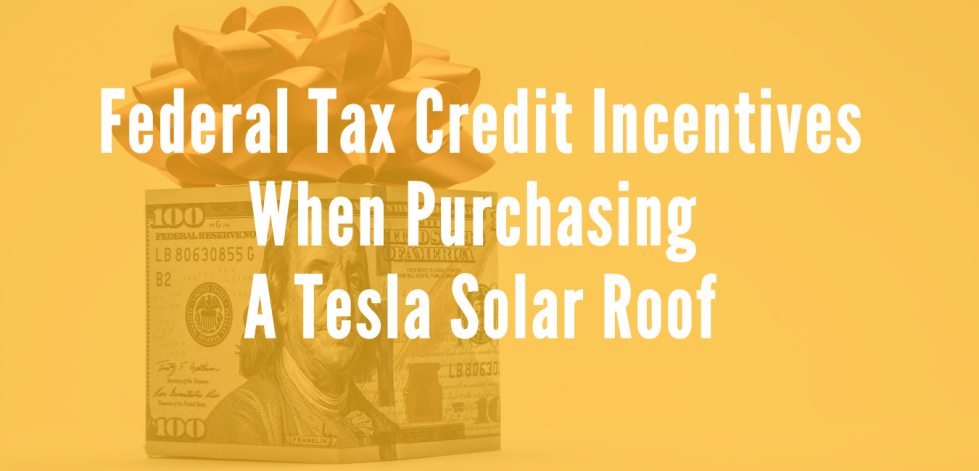Investing in a sustainable future with a Tesla Solar Roof not only makes environmental sense but also financial sense. While the upfront cost of a solar system can be a consideration, there are a variety of state and federal tax credits and incentives that can significantly offset these costs. Here is information on how to obtain Federal Tax Credit and other incentives when purchasing a Tesla Solar Roof.
1. Federal Tax Credits:
Federal tax credits are a significant incentive for adopting solar energy. Tesla’s website points out that these credits are typically claimed when filing your income taxes. They can significantly reduce your tax liability, making the transition to solar power even more attractive. As of my last knowledge update in September 2021, the federal Investment Tax Credit (ITC) allows you to claim a credit of up to 26% of the total cost of your solar system. It’s essential to keep an eye on current tax regulations and consult with a tax advisor to determine the specific credits available to you.
2. Local and State Incentives:
In addition to federal tax credits, there are often incentives offered by state and local governments. These can come in the form of rebates, tax credits, or other financial incentives. Tesla highlights that these incentives are typically claimed after you purchase your Tesla Solar Roof. To discover what’s available in your area, it’s advisable to explore local utility programs, state energy offices, and environmental agencies. These organizations can guide you through the available incentives and help you understand how to claim them.
3. Tesla’s Role in Incentive Application:
Tesla, as your solar solution provider, may play a role in obtaining incentives for your project. If incentives are associated with your installation, Tesla may assist in securing them. These incentives might be in the form of discounts applied to your purchase, effectively reducing your upfront costs. It’s essential to note that the availability of these incentives and Tesla’s role in obtaining them may vary depending on your location and the specific project details.
4. Consult a Tax Advisor:
While the prospect of federal tax credits and other incentives is exciting, it’s vital to engage with a tax advisor. Tax regulations can be complex and subject to change, so professional guidance is crucial in ensuring that you take full advantage of the incentives available to you.
Tesla’s reminder that all tax-related incentives mentioned in your pricing details are for informational purposes only underscores the need for personalized financial advice.
5. Stay Informed:
In the world of solar incentives, staying informed is key. Tax regulations and incentive programs can change over time. It’s a good idea to keep yourself updated on the latest developments, especially if you’re planning to invest in a Tesla Solar Roof in the near future.
In summary, transitioning to solar power with a Tesla Solar Roof can be financially advantageous due to federal tax credits and local incentives. It’s important to do your homework, engage with a tax advisor, and explore the resources available in your area to ensure you make the most of these incentives. By taking these steps, you can not only reduce your carbon footprint but also enjoy the financial benefits of clean, sustainable energy.


0 Comments